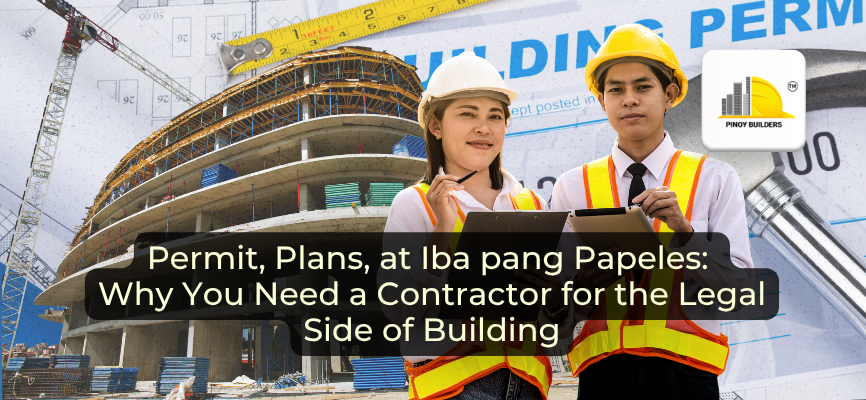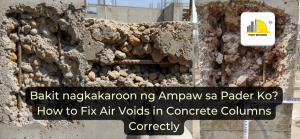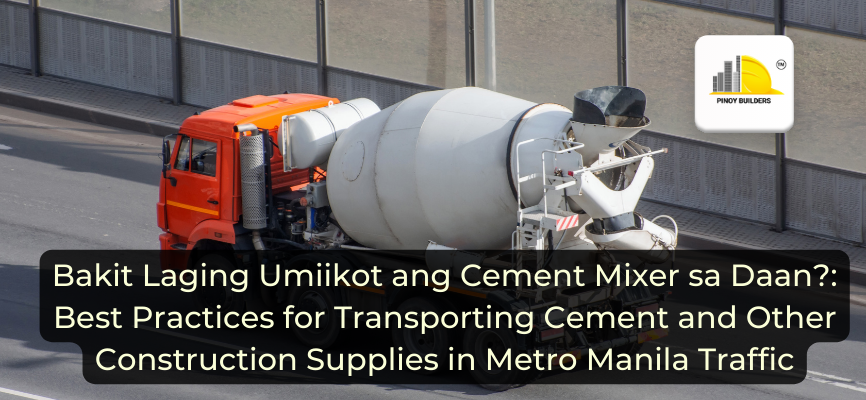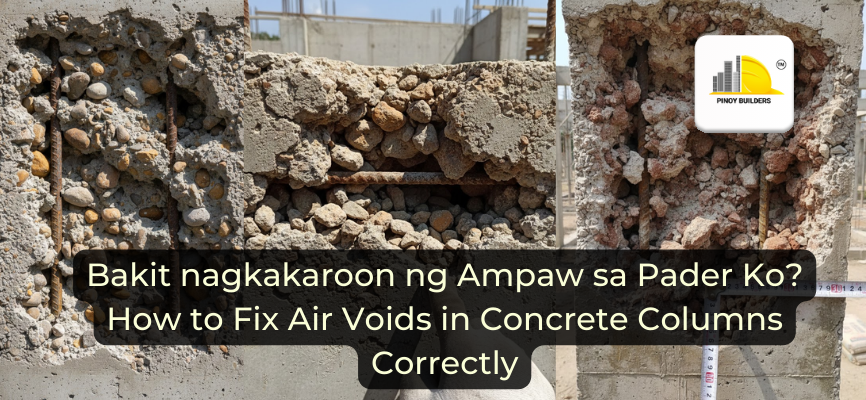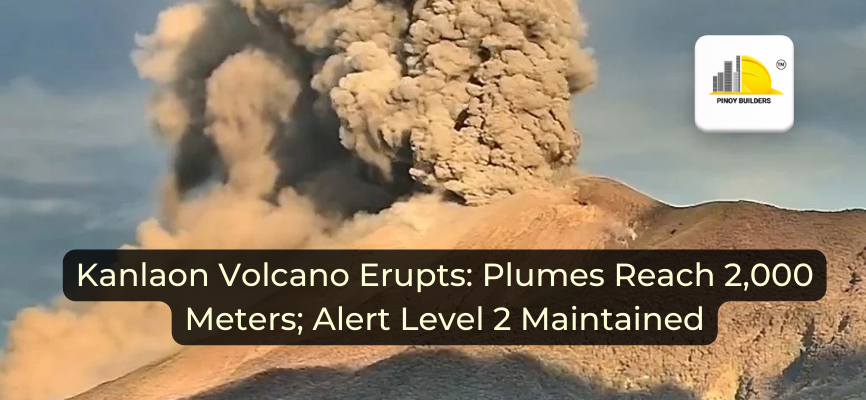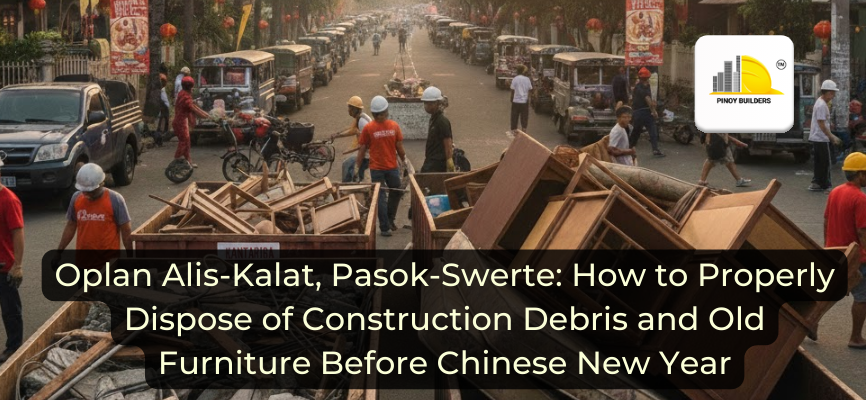Many people think building a house starts with mixing cement and stacking hollow blocks. But before any construction begins, the real work starts with papers such as permits, clearances, and plans that make your project official and secure.
These documents might not look exciting, but they are what make a home safe, legal, and ready for inspection. Each form and approval ensures your structure follows the rules of your city or municipality, from how it’s built to where it stands.
Having a reliable contractor helps make this process easier. They know which permits to file, where to go, and how to avoid delays that often come from incomplete or incorrect requirements.
In this article, we’ll explore how contractors handle the legal side of construction, why their expertise matters, and how they help you build smoothly from paper to project.
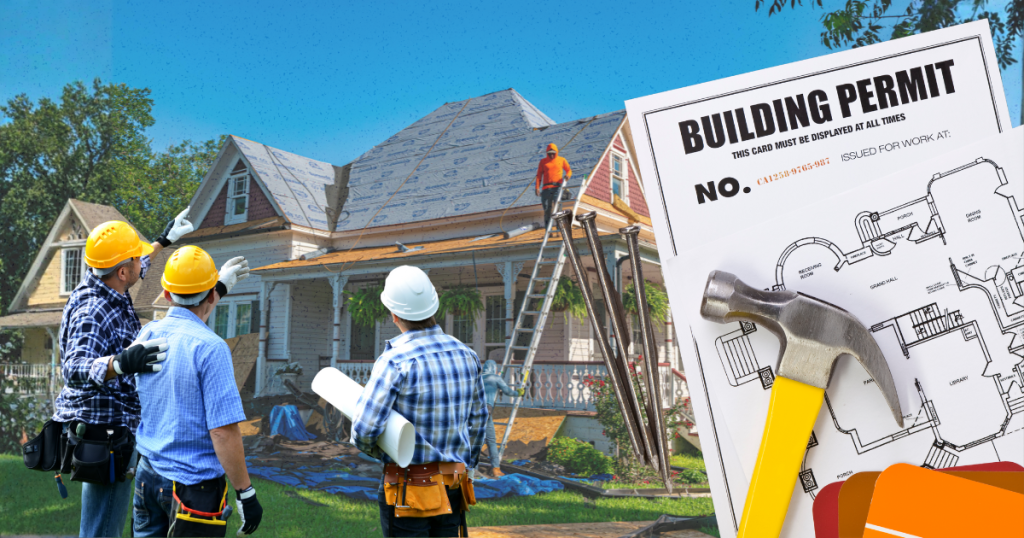
The Hidden Side of Building: Legal Requirements
Before construction begins, a series of legal and technical documents must be prepared. These serve as proof of ownership, compliance, and safety to make sure that your project is recognized and approved by local authorities.
Below are the key documents you of your contractor must secure before breaking ground:
- Copy of Lot Title or Lot Plan – This confirms the owner’s right to possess and build on the property. It also serves as the basis for creating the design plan, as contractors use the lot details to determine boundaries, dimensions, and construction feasibility.
- Affidavit of Consent from the Owner or Contract of Sale – If the builder is not the landowner, this document proves legal authority to use the property. It may come in the form of a lease, deed of sale, or an affidavit of consent from the owner. Real estate companies usually assist with this process to ensure proper title transfer.
- Tax Declaration – The government requires a tax declaration to verify that the property is properly registered and subject to real estate tax. Consulting a legal or tax professional can help ensure accurate filing.
- Latest Tax Receipts – These accompany the tax declaration and confirm that all property taxes have been paid and updated.
- Community Tax Certificate (Cedula) – The Cedula identifies the owner or permit applicant as a registered taxpayer. It is a standard requirement for business registration, employment, and most government transactions, including building permit applications.
- Lot Survey (Care of Subdivision) – A lot survey defines the exact boundaries and area of your property. For most subdivisions, this service is already included since it’s part of the government’s responsibility once real estate taxes are paid.
- Soil Exploration or Soil Bore Test – For structures three stories and above, a soil test is required. This determines the ground’s load-bearing capacity and guides engineers in designing a stable foundation.
- Barangay Clearance for Construction – This clearance serves as your local community’s approval to begin building. Contractors usually assist in processing this requirement before any work starts.
- Special Power of Attorney (SPA) – If the building permit applicant is based abroad or unable to appear in person, an SPA allows a representative to process and sign all construction-related documents on their behalf.
- Building Permit, Zoning Clearance, and Occupancy Permit – These complete the official set of construction requirements. They confirm that your project meets national building standards, follows zoning laws, and is safe for occupancy once completed.
All these documents form the legal backbone of your construction project. Having them ready not only proves ownership and compliance but also ensures a smooth, uninterrupted process from planning to completion.
Why Contractors Make a Big Difference
Beyond managing workers and materials, licensed contractors also navigate the maze of requirements behind every build. They know which offices to visit, what documents to prepare, and how to file applications correctly. What’s more, contractors often have established connections with engineers, architects, and local government offices. This network speeds up approval processes and helps avoid delays that can cost both time and money.
According to the National Building Code of the Philippines (Presidential Decree No. 1096), under SECTION 301. Building Permits:
“No person, firm or corporation, including any agency or instrumentality of the government, shall erect, construct, alter, repair, move, convert or demolish any building or structure or cause the same to be done without first obtaining a building permit therefor from the Building Official assigned in the place where the subject building is located or the building work is to be done.”
This means that if a homeowner starts construction without guidance and later discovers missing clearances, the project is legally required to halt until everything is fixed, wasting precious weeks. Meanwhile, working with a reliable contractor keeps progress steady because all paperwork was handled early. That’s the value of having an expert who knows the system inside and out.
Find the Right Contractor with Pinoy Builders Directory
Finding a trustworthy contractor is easier when you know where to look. The Pinoy Builders Directory connects homeowners with licensed, experienced professionals who understand both the technical and legal sides of construction.

Contractors listed here are your partners in ensuring each project complies with regulations from start to finish. Whether you’re planning a new house or a renovation, the directory makes it simple to connect with qualified experts who can manage permits, plans, and paperwork seamlessly.
Paperwork Builds the Foundation Too
Construction success doesn’t start with mixing cement; it begins with proper documentation. Legal compliance ensures your home stands on a foundation of trust, safety, and peace of mind.
With the right contractor guiding you through the process, your dream home can rise without worries. Every signature, permit, and plan becomes a step toward building something strong, lasting, and truly yours.
References
Presello. (n.d.). Legal Documents Required in Building a House in the Philippines. Presello. https://www.presello.com/legal-documents-required-in-building-a-house-in-the-philippines/


